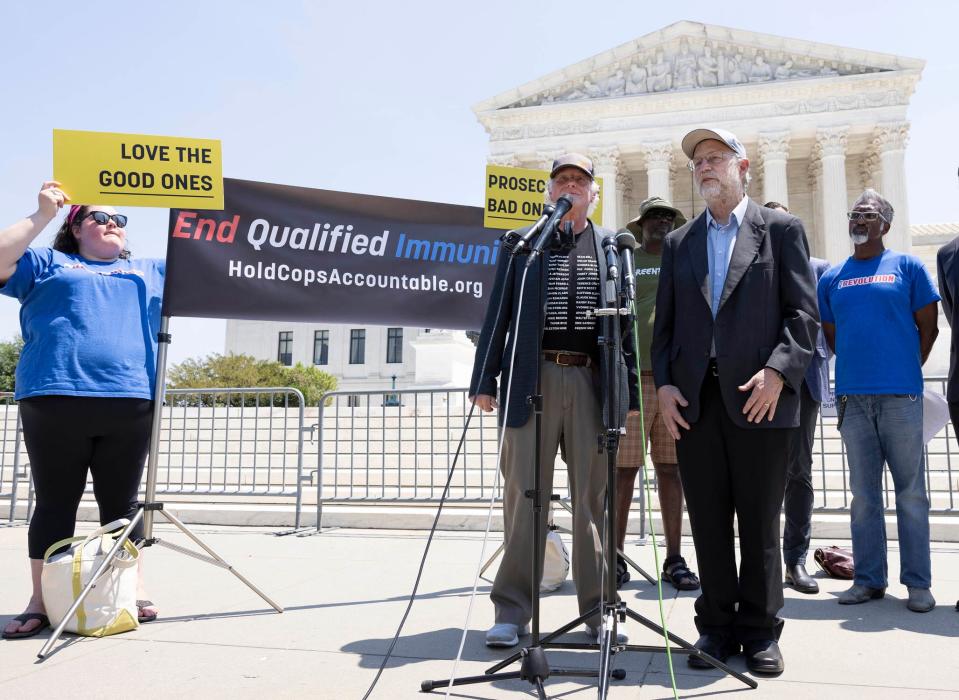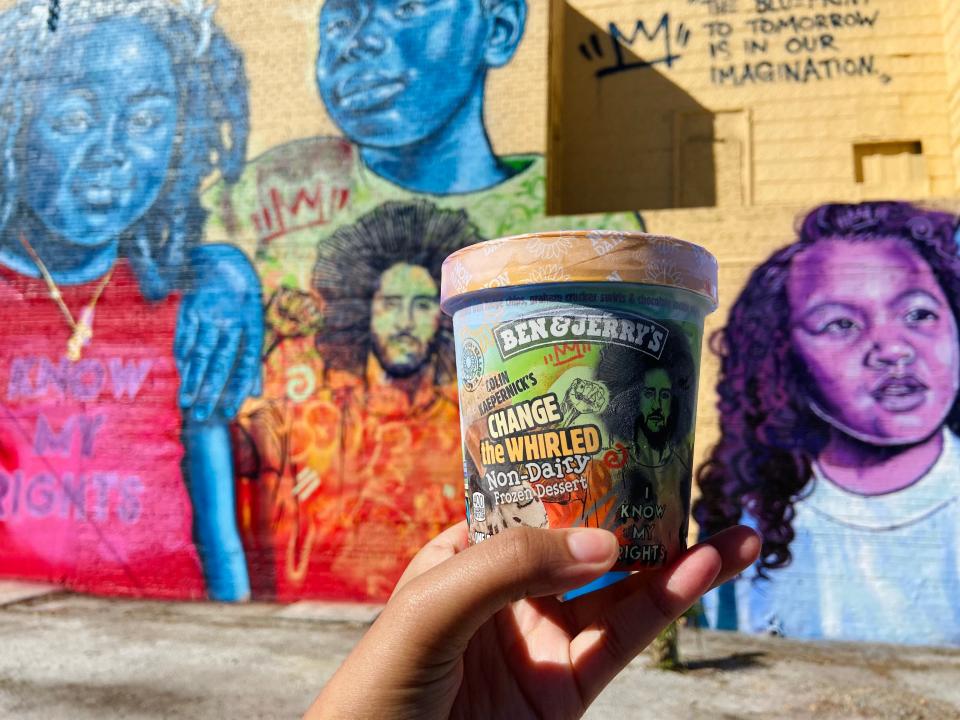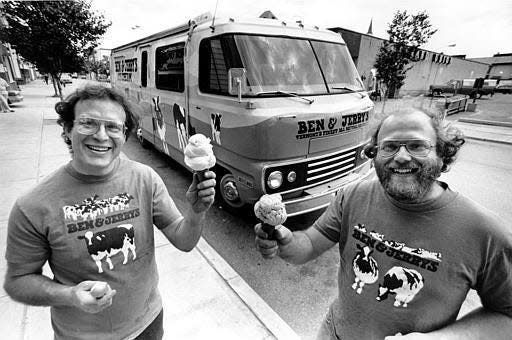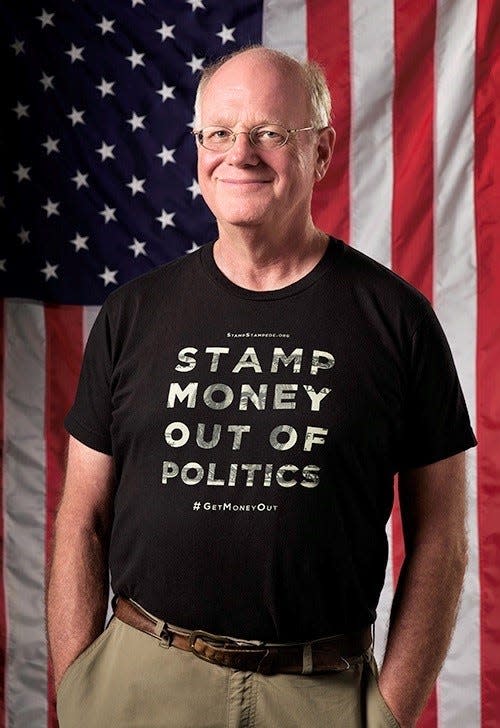Want to get marijuana legalization right? Favor Black entrepreneurs.
With the emergence of legal adult-use cannabis, we are witnessing the birth of a new industry. That’s pretty rare. Already, adult-use cannabis is legal in 19 states and Washington, D.C. And 37 states have legalized its medical use.
The size of the industry is huge. In Washington alone, state adult-use cannabis sales topped $1.5 billion last year, a 43% increase from 2019. Across all states, recreational sales are projected to hit $25 billion by 2025.
According to national polling, two-thirds of Americans want adult use legalized at the federal level. If you project that out, the size of the U.S. market could be about 130 million customers: That’s 66% of adults over 21.
Amid this historic opportunity, it’s critical for the federal government to not just legalize adult use but to do it right.
Righting past wrongs on cannabis
This means prioritizing small business entrepreneurs over big industries, providing startup resources for Black entrepreneurs who bore the brunt of the racist war on drugs, and expunging criminal records for nonviolent cannabis crimes.
Our View: Federal ban on marijuana use causes more harm than good

In the war on drugs, cannabis was placed on Schedule 1 – putting it in the same category as heroin. Schedule 1 is supposed to be reserved for drugs that have a serious risk of addiction and no medical benefits. That does not apply to cannabis.
So how did it end up there?
During Prohibition, Harry Anslinger (who at one point headed the Federal Bureau of Narcotics) was in charge of enforcement on alcohol. When Prohibition was lifted and his job was at risk, he lobbied to make pot illegal.
According to the book "God made Marijuana," he told a congressional hearing: "There are 100,000 total marijuana smokers in the U.S., and most are Negroes, Hispanics, Filipinos and entertainers. Their Satanic music, jazz and swing, result from marijuana use. This marijuana causes white women to seek sexual relations with Negroes, entertainers and others. Reefer makes darkies think they’re as good as white men.”
As a result of his racist fearmongering, Anslinger got Congress to pass the Marijuana Tax Act in 1937, effectively outlawing pot and providing him with a new job. In 1951, he lobbied for the Boggs Act, which created mandatory minimum sentencing for drug convictions.
Our View: He's serving 40 years in prison while legal marijuana makes others rich

'Social equity' in licensing is not enough. New York has a better way.
Despite using cannabis at about the same rate, Black people are arrested about four times the rate of white people as part of the war on drugs.
And while the war on drugs disproportionately targets Black people, economic opportunity favors white people: Large corporations and Wall Street. Less than 2% of cannabis businesses nationwide are owned by Black people, according to Leafly’s Jobs Report.
Many states now have “social equity” provisions that give people and communities most impacted by the war on drugs preference in licensing. This is good. But it's not enough.
At the heart of this burgeoning industry is a grotesque injustice. Without appropriate legislation, people who bore the brunt of the war on drugs will be shut out of the legal market due to centuries of discrimination – slavery, segregation, redlining – which prevented them from accruing the generational wealth that is practically a prerequisite for starting a business. It is something that we were able to build on, even as the children of immigrants, thanks, in part, to opportunities that weren't taken from us because of our skin color.
Another View: Legalizing marijuana? Stay wary of health risks and commercialization.

New York’s Seeding Opportunity Initiative points to a better way forward. The state has established a $200 million social equity fund and has pledged to reserve 50% of the licenses for people impacted by the war on drugs. But still more resources will be needed to launch the next generation of entrepreneurs. Other states and Congress should look to New York as inspiration to imitate and innovate.
This is an opportunity to create a new industry owned by regular American people instead of Big Pharma, Big Tobacco and Big Banks.
This is an opportunity to overcome hundreds of years of discrimination, and to right some of the wrongs of the past.
But we have to do it right.

Ben Cohen is a social justice advocate and the co-founder of Ben & Jerry's ice cream. Along with Jerry Greenfield, he co-authored the book "Ben & Jerry’s Double-Dip: How to Run a Values-Led Business and Make Money, Too."
This column is part of a series by USA TODAY Opinion about police accountability and building safer communities. The project began in 2021 by examining qualified immunity and continues in 2022 by examining various ways to improve law enforcement. The project is made possible in part by a grant from Stand Together, which does not provide editorial input.
You can read diverse opinions from our Board of Contributors and other writers on the Opinion front page, on Twitter @usatodayopinion and in our daily Opinion newsletter. To respond to a column, submit a comment to letters@usatoday.com.
This article originally appeared on USA TODAY: Ben & Jerry’s co-founder: How to fix injustices in legal weed industry

